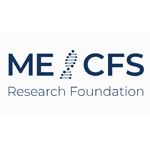The Post-COVID Kids Bavaria 2.0 research project at the Klinikum rechts der Isar of the Technical University of Munich (MRI TUM) was launched in September 2023. The project is coordinated by Prof. Dr. Uta Behrends, Head of the Munich Chronic Fatigue Center (MCFC) for young people at the Centre for Paediatric and Adolescent Medicine in Munich-Schwabing and is funded by the Bavarian State Ministry of Health and Care with 1.23 million euros.
The Centre for Paediatric and Adolescent Medicine is a cooperation between the MRI TUM and the München Klinik (MüK) gGmbH. The ME/CFS Research Foundation is one of the private co-financiers of this broad-based project. With our contribution, we are supporting and enabling the realisation of the following sub-projects in particular:
- the establishment of a model ward (clinic) for the comprehensive care of seriously ill young children, adolescents and young adults with post-COVID syndrome, post-VAC syndrome and ME/CFS
- the piloting of pilot-controlled, telemedical and outreach treatment modules for the most severely affected patients
- Identifying and evaluating potential biomarkers for precision diagnostics
People with severe ME/CFS have rarely been specifically included in biomedical research to date, as it is generally not possible for them to attend regular outpatient appointments. Home visits for the most severely affected patients are not yet sufficiently established and are very time-consuming and cost-intensive. There are therefore hardly any study results from basic or clinical research on this patient group, especially not on children and adolescents.
This largely "blind spot" in research and the targeted care of young people with post-COVID-ME/CFS is now being addressed for the first time in Germany with the help of a specialised, interdisciplinary model ward (clinic) as well as telemedical and outreach care services. In the project team, medical specialists with different specialisations, psychologists, physiotherapists, occupational therapists, social pedagogues, nurses and scientists work closely together and tailor the clinical and scientific approach individually to the symptoms and resilience of the young patients.
Prof. Uta Behrends: „We are very pleased and grateful that with this project and many partners we can focus on various important aspects of care and research into severe post-COVID, post-VAC and ME/CFS in young people. The model ward (clinic) offers an innovative, specialised contact point that we would like to see in all German federal states. With our various care formats, further education and training programmes and the involvement of the public health service, we aim to optimally meet the needs of severely and seriously affected children, adolescents and young adults. A holistic approach is important to us, which takes appropriate account of psychosocial aspects, such as education and social participation, in addition to medical aspects. We also expect the project to provide important impetus for biomedical research.„
Objectives and process of the overall project:
For young people with severe long-term consequences of coronavirus disease 2019 (COVID-19) (post-COVID-Syndrome) or very rare sequelae of COVID-19 vaccination (Post-COVID-Syndrome), there are still insufficient diagnostic and care services. This is particularly true for those who suffer from myalgic encephalomyelitis/chronic fatigue syndrome (ME/CFS) after COVID-19. However, the need for targeted medical care for these patients is enormous. Participation in social life and the quality of life of patients are often significantly impaired.
The model project Post-COVID Kids Bavaria 2.0 is intended to further develop and stabilize the care of severely affected children, adolescents and very young adults in Bavaria in line with demand. The project builds on the predecessor projects Post-COVID Kids Bavaria 1.0 as well as BAYNET for ME/CFS and the networks of clinics and research institutes established within it. The innovative project integrates various sub-projects on biomedical and healthcare research.
The establishment of a model ward (clinic) in combination with outreach and telemedical treatment modules, digital expert boards and training courses is an extraordinarily innovative approach to providing comprehensive care for those affected and researching their illness in the context of care. In addition, diagnostic and therapeutic standards are being further developed and agreed in the project. The growing "Multicentric Long COVID Register" (MLCR) is creating an important network for joint, standardized and comprehensive research into the clinical pictures. Another sub-project is researching potential biomarkers for precision diagnostics, such as cell deformability or changes in the vessels at the back of the eye. Finally, the project also provides a cross-sectoral analysis of care structures for two Bavarian model regions and explicitly addresses the public health service (ÖGD).
The overall project is initially scheduled to run until the end of 2024. The aim is to use the results to establish important foundations for the future diagnosis and treatment of young patients with severe post-infection syndromes (PAIS) and ME/CFS as well as research into these clinical pictures throughout Germany and internationally.
Why do we fund this project?
The subprojects described above fulfill the requirements of the funding strategy of the ME/CFS Research Foundation . The project's focus and research objectives correspond to the priorities identified in the Guidelines to research and care for ME/CFS and Post-COVID-Syndrome (published by German Association for ME/CFS (Deutsche Gesellschaft für ME/CFS) and Long COVID Germany) for ME/CFS in the areas of care and basic and diagnostic research, which are supported by the ME/CFS Research Foundation.
Of central importance is the targeted consideration of severely and very severely ill patients, whose care and research is particularly complex and is therefore often neglected within the framework of existing care structures and research projects. In the funded project, biosamples from housebound patients will also be obtained for research for the first time and linked to the ME/CFS Register and Biobank project, which is funded by the Federal Ministry of Health and also coordinated by the MCFC.
Jörg Heydecke: „When Prof Uta Behrends first explained her idea of a post-COVID and ME/CFS model ward in a conversation at the end of 2022, I was immediately enthusiastic. I thought it could be a pilot project for ME/CFS care and research at the same time. Based on the processes and structures to be trialled, cost and care models can be developed that will later enable reliable planning of such services for other clinics. As a private foundation, we welcome the main funding from the Bavarian State Ministry of Health and Care and are also very pleased to be able to make an important contribution to the success of the project through our donations. We are very much looking forward to the results of this extremely innovative and urgently needed project."
What are the next steps?
The project has got off to a promising start and the model ward (clinic) is under construction. All professional groups are on board. A move of the ward to new premises with an increased number of beds is planned for the middle of the year.
As of today, there is no approved treatment for post-COVID, post-vac and ME/CFS, nor have the disease mechanisms been sufficiently clarified or biomarkers for diagnosis been transferred into clinical practice. We are therefore very pleased to be able to make an important contribution to the diagnosis and care of children, adolescents and very young adults, especially those with the most severe illnesses, as part of this funding project.
The ME/CFS Research Foundation will report on the opening of the extended model station and the further progress of this important project.
How can you support the work of the ME/CFS Research Foundation?
There is still a long way to go before diagnosis, care and treatment of ME/CFS patients will one day become a medical and social standard. We at the ME/CFS Research Foundation are focussing on biomedical research, which we see as the key element in solving these problems (more on this in our research funding strategy). To do this, we need extensive support from private donors - patients, relatives, families, friends, associations, schools, networks, companies, initiatives, event organisers and all supporters. And if you can't support us directly, maybe you can share our story and motivate others to help. Because only together is such a feat possible.
We fully translate donations and other support into scientifically excellent research, networking and ultimately visible successes, i.e. better ME/CFS diagnostics and therapies. We are happy to work together with other organisations and initiatives - please contact us!
We appreciate all kinds of Support!
Please register for our Newsletter:






